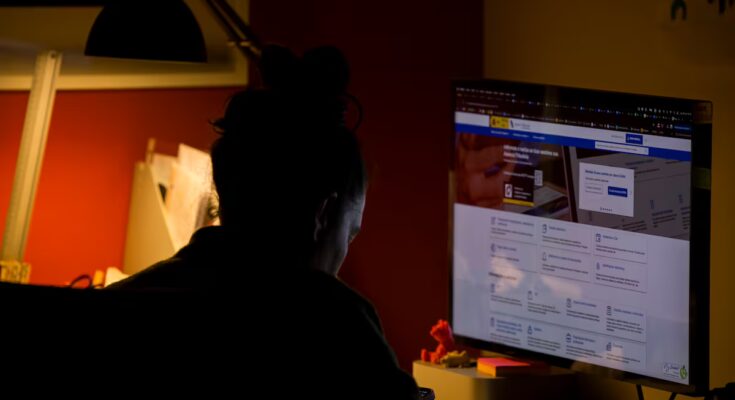2026 will be a year of profound transformation in the management of offices and law firms, especially small ones, with the generalized implementation of the VeriFactu system of the Revenue Agency (AEAT), which represents a challenge for a group accustomed to managing invoices or reports in many cases manually. This measure, which responds to the strengthening of the fight against tax fraud, is generating a considerable impact on the digital and organizational adaptation of lawyers, prosecutors and other liberal professions.
The VeriFactu system will come into force on 1 January 2026 for businesses (companies and SMEs subject to corporation tax) and on 1 July of the same year for the rest of self-employed workers and freelancers. This system requires invoices to be issued only through certified software – as of 1 July 2025 no cash-enabled system is supported – which guarantees the authenticity, integrity and traceability of payments, as well as facilitating immediate control by the Treasury. Fines for non-compliance can reach up to 50,000 euros, which underlines the importance of complying with the new regulations. According to the TeamSystem Observatory study: Only 8% have already managed to implement the necessary systems, 15% are in the pilot phase and 16% have a plan with precise dates.
The regulation that must detail the technical requirements of the electronic invoice has not yet been approved or published on the BOE. Therefore, deadlines for mandatory B2B transactions – those that occur between two companies, not between a company and an end consumer – have not yet begun to expire. But VeriFactu’s countdown is underway: the deadline for SMEs and self-employed workers to adapt their software is 1 January 2026 for companies subject to corporation tax and 1 July for the rest of businesses, SMEs and self-employed workers. This date is fixed. “The most serious mistake that an SME or self-employed person can make is to minimize the consequences of the anti-fraud law (VeriFactu) just because the electronic invoice of the Crea y Crece law does not yet have a date”, indicates José Manuel Fuentes, CEO of the technology consultancy company Cosmomedia.
The Ipsos report indicates that only 35% of SMEs and self-employed workers already use invoicing software, while another 35% continue to invoice manually with paper or Excel, a reflection of the lack of digitalisation in the sector, which makes compliance with VeriFactu difficult. The legal impact of this transformation is notable. The electronic invoice acquires a new evidentiary dimension before the Revenue Agency and other administrative bodies, increasing the formal and documentary compliance requirements. Any technical or procedural error can lead to sanctions, controls or legal complications that affect the economic sustainability of the freelancer. The growing digitalisation of the economy highlights a double deficiency: the technological gap and the lack of adequate training.
Greater control of the Treasury
“With Verifactu the only thing that changes is that the Treasury will know all the incomes of professionals, this does not change their current taxation,” says lawyer Gonzalo de Luis, who clarifies that the current VAT regulation continues to work and nothing changes in this sense. “If the accrual criterion is used, it is accounted for at the time the invoice is issued, even if it has not been collected and if the customer does not pay, it is possible to recover the VAT through the non-payment procedure; if the cash criterion is followed, the VAT is accounted for only at the time the invoice is collected, but it must be declared mandatorily within two years of the operation.” In short, he underlines, “what happens with VeriFactu is that the Treasury will have greater control”
The CEO of TeamSystem Spain, Emilio de la Fuente, turns the situation around: “SMEs and self-employed workers must not see VeriFactu and the electronic invoice as a procedure, but as an opportunity for their business. If the market leaves adaptation to the last minute, we will see bottlenecks in 2026. Complying with the provisions of the Treasury is inevitable, but the real advantage lies in reducing payment delays, accelerating collections and professionalizing the entire management of the company,” he said. defends.
In short, the implementation of VeriFactu presents freelance professions with a challenge that transcends the technical aspect to move on to the structural one. And according to the General Council of Spanish Lawyers (CGAE), law firms with fewer than ten employees (including individual businesses) represented half of the sector’s turnover in 2023. The president of the General Council of the Colleges of Administrative Directors, Fernando Santiago, sends a message of calm: “It is important to distinguish between noise and legal reality. Today, electronic invoices are only mandatory in relations with public administrations”, period. The regulatory development that will activate its general application to all businesses and professionals has not yet been approved, “so the deadlines have not started to run. There is therefore no immediate urgency, but there is the opportunity to calmly plan the digital transition and avoid improvisations”. For Fernando Santiago, “the adaptation to electronic invoicing should not be approached as a race against time, but rather as an orderly modernization process that will improve traceability, transparency and efficiency in the management of offices and companies”.
Two different obligations
There is general confusion between the electronic invoice and the Verifactu system, as well as when they apply. In reality these are two different, although complementary, obligations, clarifies the lawyer Gonzalo de Luis: “The electronic invoice is an invoicing system in digital format. You are not obliged, unless an invoice is issued to a Public Administration. VeriFactu is a system for verifying and/or sending the data of income (not expense) invoices to the Revenue Agency”. De Luis reminds that “although the electronic invoice is not always mandatory, a PDF sent via email will not have such consideration”.



